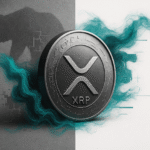Sora Ventures, a prominent venture capital firm based in Taiwan, has made headlines with the launch of Asia’s first $1 billion Bitcoin (BTC) treasury fund. This ambitious initiative was unveiled during the Taipei Blockchain Week and has already secured an initial $200 million from institutional investors throughout the region. The firm aims to fully allocate the $1 billion in Bitcoin within the next six months, paving the way for extensive corporate adoption of Bitcoin as a reserve asset.
The fund is designed to create a cohesive strategy that diverges from the individual approaches taken by companies such as Japan’s Metaplanet, Hong Kong’s Moon Inc., Thailand’s DV8, and South Korea’s BitPlanet. Unlike these firms, which hold Bitcoin directly on their balance sheets, Sora Ventures’ fund seeks to pool institutional capital. This collective strategy not only supports current treasury initiatives but also aims to foster new ones on a global scale, enhancing the overall network for Bitcoin adoption.
The emergence of digital asset treasuries (DATs) underscores a significant trend within the global financial system, where corporations are increasingly adopting Bitcoin as a strategic reserve asset—similar to traditional reserves like gold or foreign currencies. This shift is largely driven by the recognition of Bitcoin’s potential as an inflation hedge and a defense against currency debasement, especially in a time characterized by unprecedented fiat currency printing.
With traditional financial systems burdened by centralized controls, high transaction costs, and systemic inefficiencies, many companies are now exploring decentralized finance (DeFi) solutions. DeFi aims to create transparent, intermediary-free financial ecosystems built on blockchain technology, addressing the inherent weaknesses of traditional finance.
By incorporating Bitcoin into their treasuries, the firms backed by Sora Ventures are not only diversifying their investment portfolios but also aligning with a broader movement towards financial sovereignty and resilience in the emerging digital economy. This latest fund builds on Sora’s prior investments in prominent Bitcoin treasury players within the region, further solidifying its commitment to advancing this trend.
In the past year, Sora Ventures invested ¥1 billion (approximately $6.56 million) into Metaplanet, which has since become the region’s largest corporate Bitcoin holder with a staggering 20,000 BTC, valued at over $2.2 billion. Additionally, Sora Ventures has acquired Moon Inc. in Hong Kong and DV8 in Thailand, and has partnered in the acquisition of BitPlanet in South Korea, all in an effort to replicate Bitcoin-first treasury models across Asia.
The establishment of this $1 billion fund formalizes Sora’s previous efforts and aims to unify fragmented initiatives within the region, potentially positioning Asia as a formidable player in the institutional Bitcoin investment landscape and challenging the dominance of U.S.-led firms.
As corporations across the region begin treating Bitcoin as a reserve asset, they legitimize cryptocurrencies as mainstream financial tools. This growing adoption of DATs could stabilize markets by reducing volatility through longer-term holding strategies. Furthermore, a coordinated approach to Bitcoin investment could help mitigate supply shocks, given that only 5.2% of Bitcoin’s total supply remains to be mined.
Asia’s regulatory environment is also becoming increasingly favorable to the cryptocurrency sector, with regions like Singapore and Thailand implementing policies that encourage institutional participation, including Thailand’s five-year tax exemption on crypto gains. These favorable conditions can foster greater synergies between regional and global markets, improving liquidity and transparency within the digital asset space.
Nonetheless, allocating capital to digital assets is not without risks. Bitcoin, as an emerging asset class, continues to experience significant price volatility, a reality highlighted by the criticisms faced by firms during the bear market of 2022 for holding speculative assets. Additionally, regulatory uncertainties, cybersecurity risks, and liquidity challenges remain pressing concerns, particularly for large-scale funds that require robust custody and execution strategies.
Despite these hurdles, the ongoing debasement of fiat currencies—driven by excessive monetary policies and rising inflation—has sparked a renewed interest in Bitcoin as a store of value. The challenges inherent in traditional finance, which often relies on centralized institutions and can lead to inefficiencies and exclusion, have catalyzed interest in DeFi solutions that promise greater accessibility.
Sora Ventures’ new $1 billion fund represents a significant stride toward integrating Bitcoin into corporate finance, reinforcing Asia’s role in shaping the future of the digital economy. While potential risks loom, the initiative illustrates the transformative capabilities of DATs and DeFi in addressing the inefficiencies of traditional financial systems.







